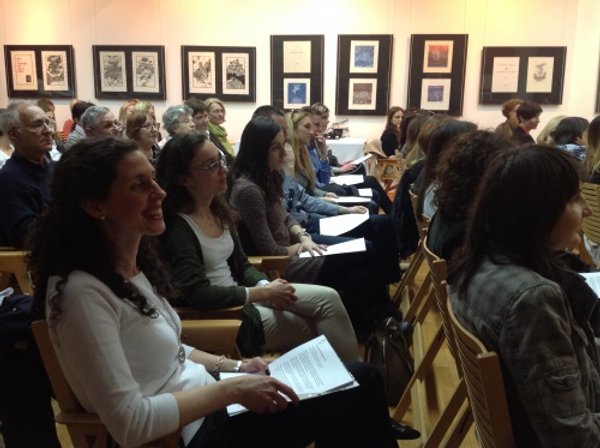
For the tenth anniversary of the opening of the Cultural Center Harmica, an Opus Dei center in Zagreb, Croatia, a conference was organized on the topic “The family in the teaching of St. Josemaria”. The lecture attracted more than a hundred girls, wives, mothers and grandmothers interested in family issues.
Martina Kovačević, a mother of two and a pharmacist, spoke about the family as the foundation of society. The family is the place from which we set out into the world and the place we can always come back to, the place which gives us a system of values, ideas, patterns, and everything that has built us up as a person. Therefore, said Martina, we need to give it the dignity and the importance it deserves. Speaking of marriage as a prerequisite for the family, she pointed out that marriage, as an institution, has existed as long as humanity itself. Moreover, marriage is a call from God, a call to build a stable family, and a place for our sanctification. “It's a big responsibility, something that requires our full commitment and continuous work and effort,” said Martina. She also invited all present not to be afraid of facing the fact that the family is the foundation of society, but to try to be the best possible basis for that society.
Jelena Čutura, mother of three and an economist, spoke about how to reconcile family and work obligations. It is very challenging to talk about this subject today because we spend a lot more time at work than with our families. So we have to define our priorities. For people who live their faith, God comes in first place, then family life, stressed Jelena. Because we do not have much time for family life, our emphasis should be on quality, not quantity. Finally she reminded participants St. Josemaria’s words: “Work is man’s original vocation. It is a blessing from God, and those who consider it a punishment are sadly mistaken.” But we must be careful that the work does not become an end in itself.
A guest speaker from London, also an economist, spoke about the professionalization of housework in the light St. Josemaria’s teachings. She presented the work of the Home Renaissance Foundation, which aims to raise awareness of the importance of home issues for the benefit of individuals, families and society.

One of the fundamental messages of St. Josemaria is that housework is of prime importance: it is dignified and noble work and should be professionally done. In line with this thought is that the people who work in the home should be granted certain rights and working conditions. She pointed out that very often these jobs are seen as humiliating and rejected, although their role is crucial for the development of an authentic human being. “As we know, people grow and develop in their homes and it is in the best interest of society to protect them,” said.
The home, said St. Josemaria, is particularly suitable for the development of a woman's personality and attention that she gives to her family will always be her greatest dignity. “This is a wonderful job which is very worthwhile. Through this profession – because it is a profession, in a true and noble sense – they are an influence for good, not only in their family, but also among their many friends and acquaintances ...”, writes St. Josemaria.
The lecturer also reminded participants of the words of G. K. Chesterton, who asked, “How can it be a large career to tell other people's children about the Rule of Three, and a small career to tell one's own children about the universe? How can it be broad to be the same thing to everyone, and narrow to be everything to someone? No; a woman's function is laborious, but because it is gigantic, not because it is minute.”
